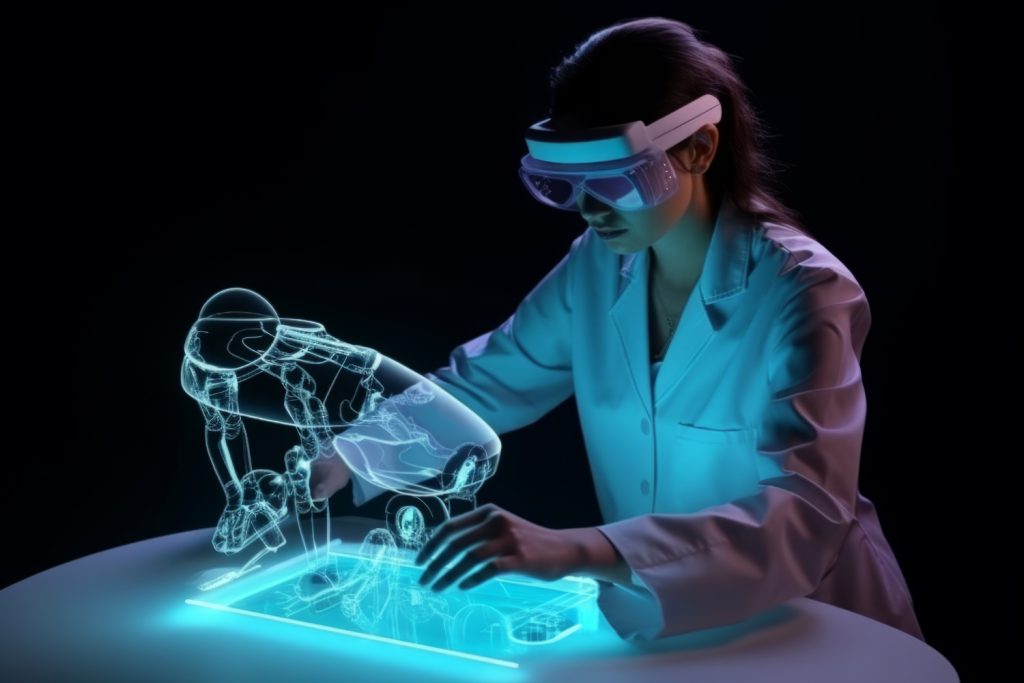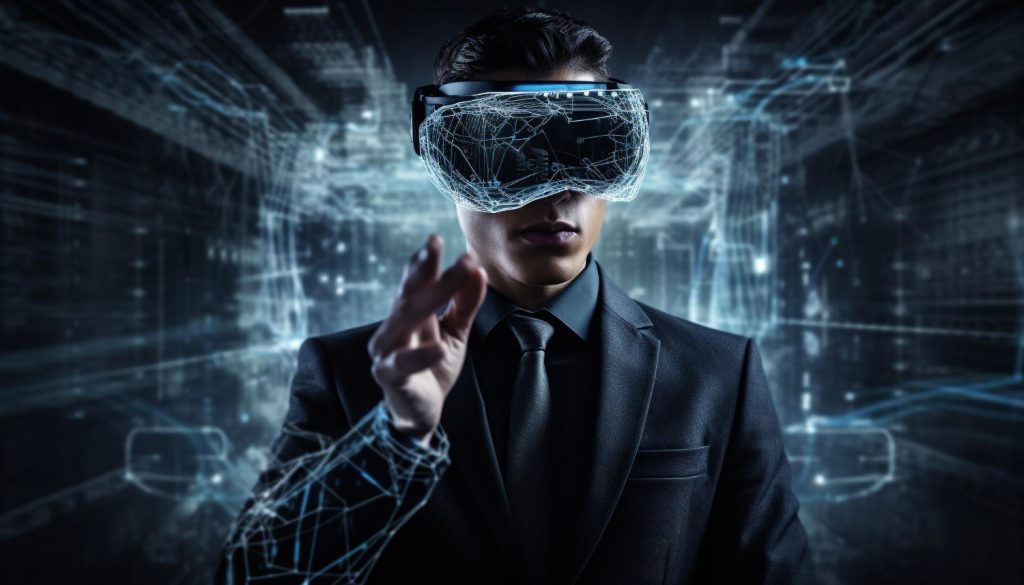VR is booming, and its impact reaches far beyond games. The VR economic impact is a hot topic. Businesses are buzzing about how VR can reshape shopping. Let’s explore how VR is changing the way we buy things.
A Virtual Peephole into the Future: Understanding the VR Economic Impact
Key Points
Before we teleport ourselves into the virtual economy, let’s align our virtual coordinates with some key points:
- VR has the potential to add significant value to the global economy by 2030.
- The transformative effects on industries such as healthcare, education, and retail.
- Challenges such as affordability and content creation lie in the path of VR mass adoption.
Picture this: we’re not just talking about gaming. Imagine conducting a surgical procedure or taking a dive into the Mariana Trench, all from the comfort of your living room.
From Pixels to Profit
With forecasts suggesting a multi-billion dollar boost to the economy, we’re looking at a gold rush in the digital age. But unlike the 19th century, the tools of trade here are headsets and haptic gloves.
Companies like HTC Vive are developing VR headsets that could be used to create these educational experiences. For example, HTC Vive has launched a Viveport Education initiative, which offers a library of VR educational content for schools and universities.
The healthcare sector sees pioneers like Osso VR revolutionizing surgical training with hyper-realistic simulations. For more insights, PwC’s Seeing is Believing report offers a deep dive into the potential of VR and augmented reality (AR).
In summary, VR is not just about new dimensions in gaming but opening myriad doors of opportunities across sectors.
Current Landscape: Bringing Virtual Closer to Reality

While we often daydream about fantastical virtual worlds, VR technology is making significant strides in merging these fantasies with our reality. From virtual showrooms to remote learning environments, VR is bridging distances and creating experiences that were once the stuff of sci-fi novels.
Think of VR like the express train in the world of technology: fast, exhilarating, and capable of taking you places you’ve never been before. Oculus Rift and HTC Vive are currently leading this locomotive, offering experiences that blur the lines between the virtual and the real.
For an authoritative piece on how VR is Revolutionizing Assortment Planning in Retail, this article sheds light on the transformative potential of VR in retail and beyond.
VR is turning fantasy into reality, transforming how we shop, learn, and even receive healthcare.
A Snapshot of Virtual Trendsetters
In every tech revolution, some pioneers pave the way for future innovations. In the arena of VR, the SteamVR platform and Oculus provide fascinating case studies of how VR is not just reshaping gaming but also creating communities and spaces for virtual social interactions.
Through innovation and daring, VR is creating a new digital society, opening doors to virtual experiences that were once unthinkable.
Ethical Dilemmas in the Virtual Wonderland
Virtual Reality or Virtual Responsibility?
Let’s talk VR ethics! VR is amazing, but there are important questions to consider. Privacy, data security, and mental health effects of long VR use are all concerns.
VR companies have a big responsibility – they’re not just making cool worlds, they’re handling our data and well-being.
An article in Wired on Oculus privacy settings dives into this complex world. Just like the innovation itself, figuring out VR ethics is important to make sure this tech helps us, not hurts us.
The Future of VR

Virtual Reality (VR) stands poised for a transformative leap forward. Fueled by advancements in 5G, Artificial Intelligence (AI), and haptic feedback, VR experiences are on the cusp of becoming more immersive, interactive, and intuitive. These emerging technologies act as the launchpad propelling VR towards a new frontier of possibility.
The convergence of VR with other cutting-edge advancements, such as Augmented Reality (AR) and Mixed Reality (MR), promises to further blur the lines between the virtual and the real. This burgeoning future holds immense potential, as explored in the Qualcomm insight on the intersection of 5G and VR and the Harvard Business Review’s analysis of VR’s potential in the workplace.
In Closing: Virtual Reality, the Final Frontier?
As we conclude our exploration of VR’s economic impact, it’s evident that VR is more than just a technological marvel; it’s a gateway to new dimensions of human experience and economic opportunity.
- VR is reshaping industries, offering unparalleled opportunities for economic growth and innovation.
- Navigating the ethical implications of VR is paramount for a future where technology and humanity coexist in harmony.
- The fusion of VR with emerging technologies heralds a new era of immersive experiences, blurring the lines between the virtual and the real.
FAQs on VR Economic Impact
How much is the VR industry worth?
As of recent estimates, the VR industry is poised to grow significantly, potentially reaching a market value of over $50 billion by 2026.
What industries are most affected by VR?
Healthcare, education, real estate, and retail are among the industries experiencing the most profound changes due to VR technology.
Can VR create new jobs?
Yes, the expansion of the VR industry is expected to create a wide array of new roles, from content creators to specialized engineers.
What are the main challenges facing the VR industry?
High costs of hardware, content creation hurdles, and addressing privacy concerns are among the primary challenges for broader VR adoption.
References
- PwC’s Seeing is Believing report: Offers insights into the transformative potential of VR and AR in various industries.
- SteamVR platform: A leading marketplace for VR content, providing a snapshot of current applications and trends.
- Wired article on Oculus’s privacy settings: Discusses the ethical implications and privacy concerns associated with VR technology.
- Qualcomm insight on 5G and VR: Examines how the arrival of 5G technology could revolutionize the VR experience.
- Harvard Business Review on VR in the workplace: Offers a look into the future applications of VR beyond entertainment.
- The Agentic Startup Manifesto - June 8, 2025
- Remote Hiring in 2025 - April 5, 2025
- Burnout in Remote Teams: How It’s Draining Your Profits - January 27, 2025
